The Maryland-National Capital Region Emergency Response System (MDERS) hosted its seventh annual symposium in early May. This forum brings industry leaders and distinguished speakers together to discuss topics related to homeland security threats. This year’s symposium theme was Reimagining Homeland Security: What Public Safety Leaders Need to Know to Navigate the Evolving Threat Landscape. The two-day virtual event allowed our regional partners to understand emerging and evolving threats that impact the National Capital Region.
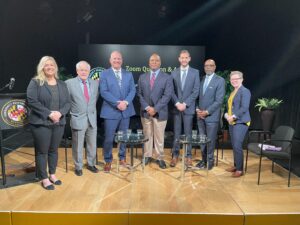 The program started off with a panel discussion on public order and crowd control. Darrell Darnell moderated the conversation and was joined by Glendale Fire Chief Ryan Freeburg, Philadelphia Office of Emergency Management Homeland Security Program Manager Gary Spector, Yale University’s Associate Vice President for Public Safety and Community Engagement Ronnell Higgins, and Emergency Department Physician and the Institute of Emergency Management Director for the MedStar Washington Hospital Center Craig DeAtley. The panelists explored discipline-specific and multiagency coordination in planning for and responding to large-scale public order events. Symposium attendees posed various questions to the panelists to facilitate discourse about various public order topics. The breadth of this discussion supplied participants with lessons learned and best practices for response to large-scale planned and unplanned public order events.
The program started off with a panel discussion on public order and crowd control. Darrell Darnell moderated the conversation and was joined by Glendale Fire Chief Ryan Freeburg, Philadelphia Office of Emergency Management Homeland Security Program Manager Gary Spector, Yale University’s Associate Vice President for Public Safety and Community Engagement Ronnell Higgins, and Emergency Department Physician and the Institute of Emergency Management Director for the MedStar Washington Hospital Center Craig DeAtley. The panelists explored discipline-specific and multiagency coordination in planning for and responding to large-scale public order events. Symposium attendees posed various questions to the panelists to facilitate discourse about various public order topics. The breadth of this discussion supplied participants with lessons learned and best practices for response to large-scale planned and unplanned public order events.
Day two of the program featured a variety of homeland security topics that leaders should consider such as, critical infrastructure security and resiliency, cyber risk management, and the consequences of political violence on U.S. elections. The morning kicked off with a presentation by Jonathon Monken of Converge Strategies and Daniel Genua from the Cybersecurity Infrastructure Security Agency (CISA) on physical threats to critical infrastructure. The speakers explored current threats to power infrastructure and provided recommendations on how to mitigate and respond to potential threats when they arise.
The critical infrastructure presentation was followed by a panel discussion on cyber threats and consequence management. The panelists, Daniel Genua from CISA and David Paniwozik from the Federal Bureau of Investigation (FBI) discussed basic steps organizations can take to reduce their vulnerability to a cyber intrusion and limit the cascading effects of a cyberattack.
Closing out the program was a presentation on political extremism and its potential impact on election security. Seamus Hughes from George Washington University and Katie Reisner from States United Democracy Center discussed current trends and threats posed by terrorist groups and how some radicalization efforts can heighten political violence.
The Symposium was well received by those who tuned into this year’s program. The featured topics were carefully curated to provide the MDERS stakeholder community with information and tools that will aid them in their ability to respond to emerging and evolving threats. MDERS would like to sincerely thank all speakers for their participation, Howard University for broadcasting the event, and the MDERS staff who were involved in the planning and execution of this year’s program. MDERS’s next symposium will be held in the spring of 2024.

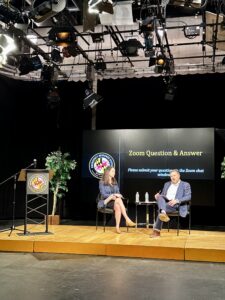

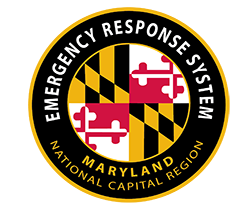
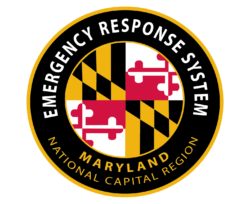


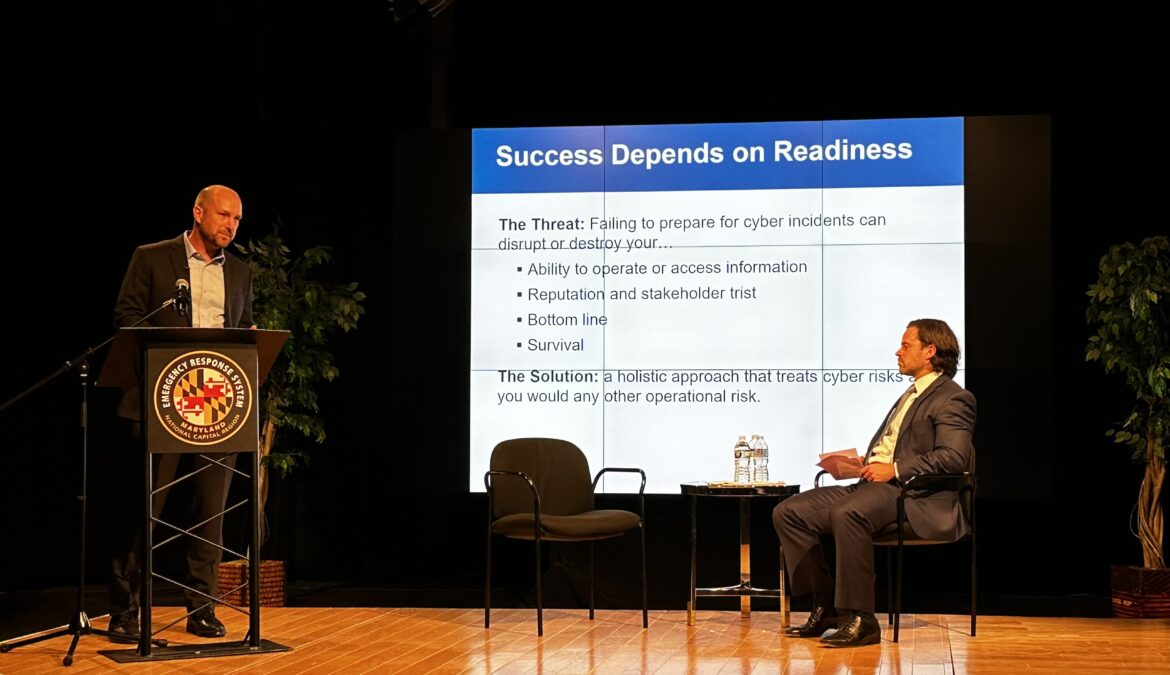
 The program started off with a panel discussion on public order and crowd control. Darrell Darnell moderated the conversation and was joined by Glendale Fire Chief Ryan Freeburg, Philadelphia Office of Emergency Management Homeland Security Program Manager Gary Spector, Yale University’s Associate Vice President for Public Safety and Community Engagement Ronnell Higgins, and Emergency Department Physician and the Institute of Emergency Management Director for the MedStar Washington Hospital Center Craig DeAtley. The panelists explored discipline-specific and multiagency coordination in planning for and responding to large-scale public order events. Symposium attendees posed various questions to the panelists to facilitate discourse about various public order topics. The breadth of this discussion supplied participants with lessons learned and best practices for response to large-scale planned and unplanned public order events.
The program started off with a panel discussion on public order and crowd control. Darrell Darnell moderated the conversation and was joined by Glendale Fire Chief Ryan Freeburg, Philadelphia Office of Emergency Management Homeland Security Program Manager Gary Spector, Yale University’s Associate Vice President for Public Safety and Community Engagement Ronnell Higgins, and Emergency Department Physician and the Institute of Emergency Management Director for the MedStar Washington Hospital Center Craig DeAtley. The panelists explored discipline-specific and multiagency coordination in planning for and responding to large-scale public order events. Symposium attendees posed various questions to the panelists to facilitate discourse about various public order topics. The breadth of this discussion supplied participants with lessons learned and best practices for response to large-scale planned and unplanned public order events.
